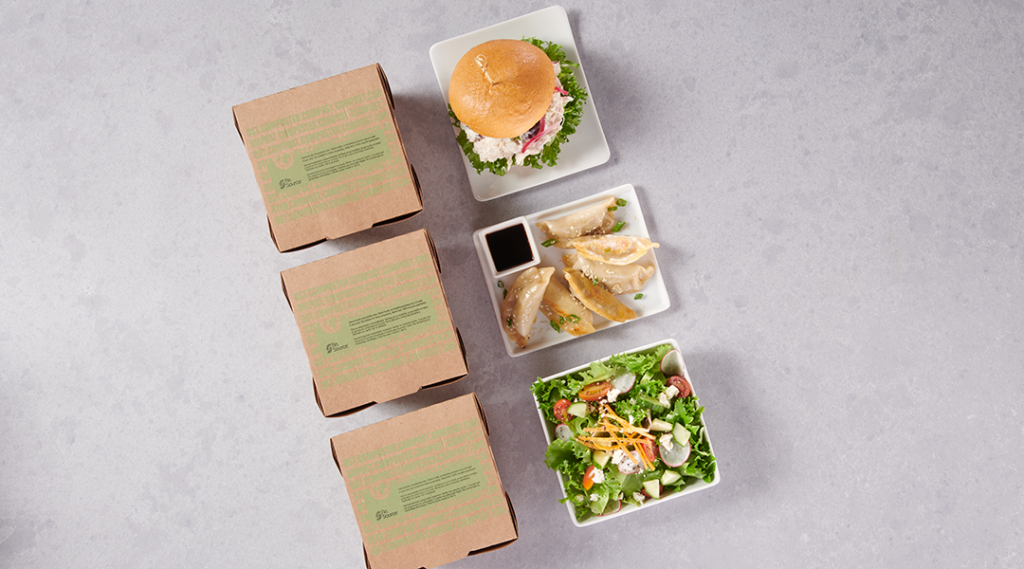They can work for you if you correct their mistakes and build their confidence the right way
Gen Z is sometimes called “iGen” for the devices they carry. In the restaurant business, this group of 16- to 24-year-olds is called the future—the first fully global generation.
Wait a minute … how can Gen Z be so worldly at such a tender age? Don’t be fooled, they’re connected in a big way. They’re constantly in sync with the outside world thanks to the devices they carry in the palm of their hands. They’re connected on road trips, at social gatherings, and at work.
They ignore barriers that once separated people—gender, race, national borders, economic well-being, and more. They’re also used to having things their way. They consume media when and where they want, and online stores are open even if it’s the middle of the night or a statutory holiday.
Some might say they’re spoiled. The iPod, iPad, iPhone, iEverything world they know so well clearly signals a selfish, me-at-the-centre-of-the-universe lifestyle. That puts extra pressure on employers seeking to hire, train, retain, and motivate this youngest generation as it enters the labour pool.
The laws of attraction: changing the playbook
Hiring these workers starts online. Careerbuilding.com says these people may consult up to 15 sources to research opportunities and employers. They don’t consult printed classified ads, and they may never notice the “Help Wanted” sign in your window. To reach these screen addicts, post at every online site you think is relevant, from Workopolis, Monster and Indeed to eluta.ca, kijiji.ca and craigslist.ca. Social sites such as Facebook, Twitter, or LinkedIn also are essential, both as a place to advertise job openings and as a place to link to your restaurant’s website.
Because they consult so many sources, know that they’re just skimming the surface. Brief job descriptions are a must. A 2015 ultimatesoftware.com study showed 40% of Gen Z job seekers are unwilling to spend a full minute reviewing online job descriptions. As for the application process, simple is better. A 2015 snagajob.com report showed that 97% of Gen Z online applicants don’t complete the entire application. One way to improve your appeal is to engage this screen-focused generation. Quintcareers.com suggests offering videos of what life is like at your business. This could set you apart from other employers by allowing Gen Z a virtual visit before they ever walk in the door.
Learn to train Gen Z for their success—and yours
Many in Gen Z have a sense of entitlement. They come by it naturally, according to Dan Longton, President of workforce training company TraitSet. Parents of Gen Z children told them they were special and could do anything. Gen Z was praised often and criticized rarely.
Your job is to show them you’re the boss, not the parent, says Ken Wasco, Gordon Food Service Customer Effectiveness Manager. This means your training must include constructive criticism—correcting their mistakes, shaping their skills, and building confidence. And that plays right into their sense of entitlement. Because Gen Z is often educated, confident, and connected, they’re eager to prove themselves. It’s up to you to show them how their work has meaning and fits into the bigger picture.
Because Gen Z is so young, Longton says, it’s best to focus on the basics: skills and house rules. Well-established rules—the method for greeting customers, proper storage for glasses, food-safety measures, etc.—make training easier for you and for them. Once they recognize how basic rules apply to overall efficiency and customer satisfaction, it promotes personal and operational growth. Communicating with Gen Z is always right at your fingertips. They’re very comfortable with informal feedback. A text or a brief email can be just as effective as a conversation.
Gain Gen Z’s loyalty by nurturing them
Members of Gen Z are full-time brand managers. They have an entrepreneurial, be-my-own-boss mindset, according to the Fast Company article What is Generation Z, and What Does it Want? They seek immediate validation on social media, because that’s where their friends hang out and where many important connections and conversations happen.
Retaining and motivating Gen Z workers comes down to empowering them as they gain more experience. This prevents job burnout. A 2015 Washington State University study encourages “deep acting” exercises, putting workers in the shoes of the customer. This helps them better understand the problem-resolution process.
Quintcareers.com suggests workplace issues that are most important to the youngest members of the workforce, including such things as bonds between co-workers and friendships with bosses. Flexible hours and schedules also are important when it comes to work-life balance.
Perhaps most important is providing challenging work with advancement opportunities or some other type of recognition. Even when the job is as basic as taking customer orders or clearing tables, establishing advancement opportunities will keep the job fresh. Longton suggests the carrot-and-stick approach of an afternoon off if a certain goal is achieved, or a small pay increase when an anniversary date is reached. All of this advice fits well with the findings of The 2016 Deloitte Millennial Survey, which shows the youngest workers are much more loyal to organizations and mentors when they sense someone is interested in their professional development.

























